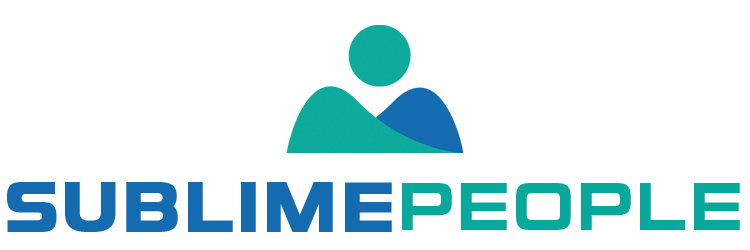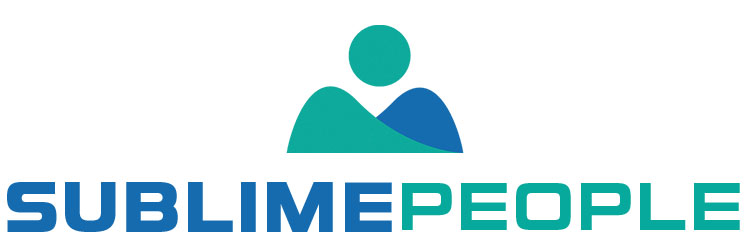Hiring biases are unconscious or conscious preferences that influence decision-making during the recruitment process. These biases can have a significant impact on the diversity and inclusivity of a workplace, as they often lead to discrimination against certain groups of candidates. It is important for organizations to understand and address these biases in order to create a fair and equitable recruitment process. In this article, we will explore the 9 types of hiring biases that commonly occur in recruitment processes and discuss strategies to overcome them.
Bias can negatively impact your hiring process, forcing you to miss out on qualified candidates and sometimes even make terrible hires. The good news is that eliminating bias from your hiring process is easy and practical.
In this Article:
What are Hiring biases?
Hiring biases refer to discrimination towards something, people, or groups by a person in the sense that is unjust. Hiring bias occurs when different, unreasonable standards apply when evaluating candidates for hiring within organizations and companies. Most times, hiring managers dismiss those candidates because they bias their interviews.
From resume screening to interview questions, there are many ways that conscious or unconscious biases can creep into the process and impact who gets hired.
- Conscious bias is a bias that individuals are cognitively aware of. For instance, if you intentionally prefer working with men over women and hire men over women, your conscious bias is influencing your recruiting choices.
- Unconscious bias is categorizing individuals or groups without being aware of it. For instance, when employing someone, a hiring manager will go with their intuition. It’s likely that the manager favors one candidate over another because of unfair biases.
While some bias is intentional, often it’s simply the result of humans being human. We all have our own personal preferences and experiences that can influence our decision-making. Being aware of them can help you mitigate their impact and ensure that you’re making the best possible decisions for your company.
How does bias affect hiring?
Bias can negatively affect the hiring process in several ways.
- It can lead to resume screening that is unfair and discriminatory, interview questions that are loaded with personal bias, and hiring decisions that are based on irrational factors.
- Biased hiring practices can also cause a workforce that is not representative of the diversity of qualified candidates, which can lead to problems with employee morale and retention.
How to overcome bias in the workplace?
Research suggests that hiring managers often base their decisions on unconscious bias, rather than on objective criteria. Unconscious biases can lead to hiring managers making judgments about candidates based on irrelevant factors, such as their names or where they went to school.
There are a few steps you can take to help reduce bias in the hiring process:
- Use blind screening. Remove names and other identifying information of the best candidates from resumes before being reviewed. This can help to level the playing field for candidates and prevent unconscious bias from affecting the outcome of hiring decisions.
- Conduct structured interviews. Ask all candidates the same questions in the same order. This will help to ensure that you’re getting an accurate picture of each candidate’s qualifications.
- Make sure that a diverse group of people makes hiring decisions. This will help to ensure that you hear all voices and that the final decision is not based on any one person’s bias.
What is unbiased hiring?
Unbiased hiring is the practice of hiring employees without regard to factors that could lead to discrimination. This includes hiring employees without regard to their race, ethnicity, gender, sexual orientation, or other protected characteristic.
Unbiased hiring practices help to ensure that all employees are equally for open positions. They help to create a more diverse and inclusive workforce. Additionally, unbiased hiring practices can help to improve employee morale and retention rates.
How do you know if your company has an unconscious bias in hiring?
There are a few signs that your company may have an unconscious bias in hiring.
- You only consider candidates who come from the same background as you.
- You’re only looking at candidates from a small pool of schools or companies.
- You’re not considering a diverse group of candidates for open positions.
- You’re making assumptions about candidates based on their appearance or name.
- You’re not giving all candidates an equal chance to interview for open positions.
If you notice any of these signs, it’s important to combat bias in the hiring process. This will help to ensure that you’re making the best possible decisions for your company. It will also lead to more diverse candidates, which can help to improve employee morale and retention. Finally, it will help ensure that your company makes the most of its talent pool.
When does hiring bias occur?
In the recruitment process, hiring bias is possible no matter what your selection process is. Sometimes a person thinks hiring bias occurs when they offer their job, but often this happens earlier and persists at the same stage throughout.
Hiring bias can occur at any stage of the hiring process.
- It can happen when recruiters write job postings in a way that excludes certain groups of people.
- It can happen when the hiring team reviews resumes and selects interview candidates.
- And it can happen during interviews when the hiring team asks irrelevant questions about the job position.
Why are there so many wrong hires?
Research shows that much of the interview process is driven by race and/or gender discrimination. This can negatively affect your hiring process and your reputation and bottom line.
There are a few reasons you make wrong hires.
Poor job fit.
Many wrong hires occur when the candidate is not a good fit for the job. This can happen when the recruiters do not write well the job description, or when the hiring manager does not take the time to understand the qualifications that are required for the position.
Unconscious bias.
This plays a role in the hiring process, leading to wrong hires. This can happen when a hiring decision depends on irrelevant factors, such as their name or where they went to school.
Lack of experience.
Sometimes, companies make wrong hires because the candidate does not have enough experience for the position. This can happen when the job posting requires too much experience, or when the hiring manager does not take the time to train the new hire.
The 9 types of hiring biases
Understanding the different hiring biases is the first step to preventing each kind of bias from impacting your hiring process. These 9 biases are mainly relevant to the recruitment processes.
Resume Screening Bias
Employers focus on certain criteria when reviewing resumes that may be unrelated to the job requirements. For example, an employer may prefer candidates who attended a prestigious college, even if they are not as qualified as other candidates.
Interview Questions Bias
This is when employers ask interview questions that are unrelated to the job or that are discriminatory. For example, an employer may ask a female candidate if she plans on getting married or having children, which is illegal and irrelevant to her ability to do the job.
Reference Checking Bias
This is when employers only contact references they know and will give positive feedback about the candidate, instead of speaking with various references. This can lead to hiring managers only hearing good things about the candidate, even if there are negative things to be said.
Promotion Bias
This is when employers give preference to certain employees for promotions based on factors that are unrelated to their job performance. For example, an employer may promote a white male employee over a more qualified candidates female employee because of the belief that the white male employee will be more loyal to the company.
Expectation Anchor Bias
Expectation anchor bias is a cognitive bias that occurs when a resume writer interviews a candidate and believes that only one characteristic or skill counts and/or the applicant is tied to the attribute. The most common case involves when excellent workers recently left a post, and the interviewers look for a carbon copy. Typically, faulty data may affect an applicant’s interview performance and hiring processes.
Social Comparison Bias
Some companies have high-ranking employees who may seek to safeguard their positions by making recommendations from others. The process involves several ways to avoid qualifying candidates for interviews.
This may be a problem for staff members who do not have direct hiring responsibility. In other words, John doesn’t want Beth to become a partner with the large customer accounts because Beth has a strong reputation.
Race and ethnicity Bias
There is a bias that employers hire people of the same race or ethnicity as them. This can lead to a lack of workplace diversity and opportunities for qualified candidates of other races or ethnicities.
Gender Bias
Gender bias means comparing one gender to another. At present, many interviewers believe they should hire men in certain positions, especially in math. Likewise, the hiring committee could encourage women to take on responsibilities in nursing and teaching when men are also well qualified in those jobs. This can lead to a lack of diversity in the workplace, as well as opportunities for qualified women or men candidates.
Contrast Effect (Judgment) Bias
This bias is when people compare individuals to others in their group who have contrasting characteristics. For example, if an interviewer meets two job candidates, one who is very qualified and one who is not as qualified, the interviewer may judge the less qualified candidate more harshly because of the contrast.
A word from SublimePeople
These are just a few of the most common hiring biases that can come into play during the hiring process. It’s critical to be aware of the various hiring biases that could influence how you choose to select new employees. Remember that the best applicant for the position may not always be the obvious pick, therefore, it is crucial to give each prospect a comprehensive evaluation. Consider all factors when making your final decision and avoid letting any bias influence your judgement. Promote diversity and fairness in the workplace by considering all qualified candidates for each position.






